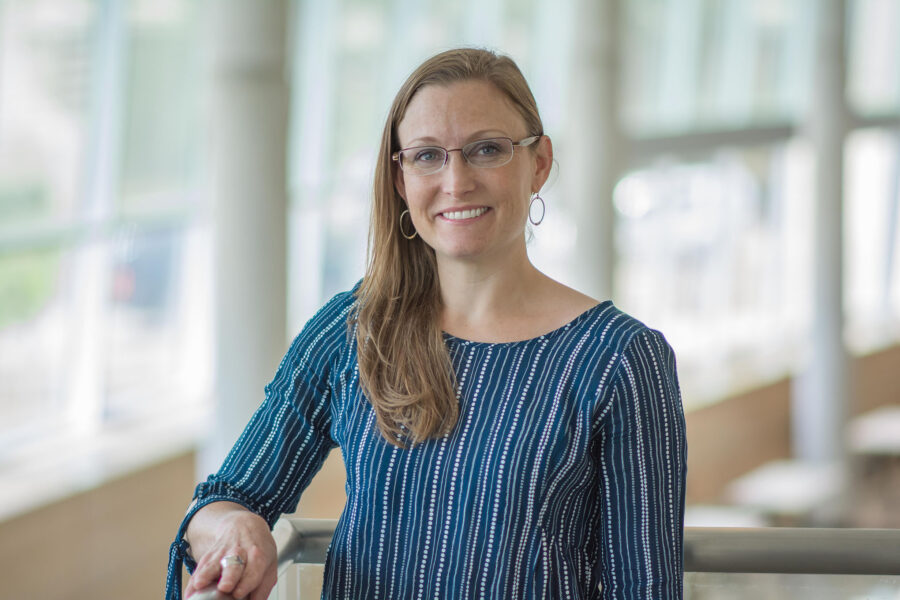Lisa Rucks, PhD, a professor in the UNMC Department of Pathology, Microbiology and Immunology, will discuss Chlamydia trachomatis at the next Science Café presentation, to be held at 7 p.m. on Feb. 6 at the Slowdown, 729 N. 14th St.
Dr. Rucks first became interested in this topic while attending graduate school at West Virginia University, where she was inspired by Priscilla Wyrick, PhD, and the late Jane Raulston, PhD, visiting scientists who were invited to present on it.
“I was trying to decide what to do next after defending my PhD, and because of their seminars, I became absolutely fascinated by this amazing pathogen and wanted to become a better cellular microbiologist,” Dr. Rucks said.
Dr. Rucks said that about 70% of chlamydial infections are asymptomatic, which is one of the reasons why it is so easily spread and often goes untreated, something she will talk about during her presentation.
“These infections disproportionately impact young women between the ages 17 and 25, which is typically before the average women becomes pregnant for the first time,” Dr. Rucks said. “Untreated chlamydial infections can lead to fibrotic scarring in the upper genital tract, which can impair fertility. Antibiotic treatment of chlamydia can negatively impact the vaginal microbiome, which can result in additional uncomfortable complications like yeast infections or bacterial vaginosis.”
Dr. Rucks said that with understanding of how C. trachomatis manipulates its host and establishes infection, novel and targeted anti-chlamydial drugs can be developed that will leave the rest of vaginal microbiome untouched.
Dr. Rucks is one of five principal investigators within the Obligate Intracellular Pathogen Research Group at UNMC and is also a member of the UNMC Nebraska Center for Women’s Health Research.
Her current research interests include understanding fundamental chlamydial-host interactions that facilitate infection and disease severity.
Science Cafés involve a conversation with an expert about current science topics. They are open to everyone. Each meeting is organized around an interesting topic of conversation. Experts give a brief presentation followed by a Q&A period.
